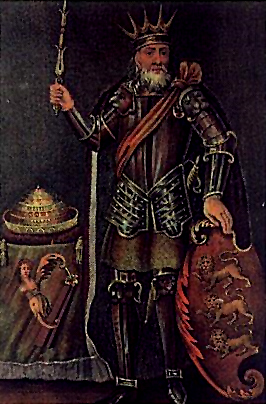O'Brien dynasty
 | coat of arms =
| coat of arms = Arms of O'Brien | country = Kingdom of Munster, Kingdom of Thomond | parent house = Dál gCais | titles = *Kings of Munster *Kings of Cashel *High Kings of Ireland *Kings of Limerick *Kings of Dublin *King of Mann and the Isles *Kings of Waterford *Kings of Thomond *O'Brien claim to Desmond | founder = Brian Boru | final ruler = Murrough O'Brien, King of Thomond | founding year = | dissolution = | cadet branches = }} The '''O'Brien dynasty''' (; ; genitive ''Uí Bhriain'' ) was an Irish Clan and noble house of Munster, founded in the 10th century by Brian Boru of the Dál gCais (Dalcassians). After becoming King of Munster, through conquest he established himself as ''Ard Rí na hÉireann'' (High King of Ireland). Brian's descendants thus carried the name Ó Briain, continuing to rule the Kingdom of Munster until the 12th century where their territory had shrunk to the Kingdom of Thomond which they would hold for just under five centuries.
In total, four Ó Briains ruled in Munster, and two held the High Kingship of Ireland (with opposition). After the partition of Munster into Thomond and the MacCarthy Kingdom of Desmond by Tairrdelbach Ua Conchobair in the 12th century, the dynasty would go on to provide around thirty monarchs of Thomond until 1542.
During part of this period in the late 13th century they had a rivalry with the Norman de Clare house, disputing the throne of Thomond. The last Ó Briain to reign in Thomond was Murrough Ó Briain who surrendered his sovereignty to the new Kingdom of Ireland under Henry VIII of the House of Tudor, becoming instead Earl of Thomond and maintaining a role in governance.
Throughout the time that the Ó Briains ruled in medieval Ireland, the system of tanistry was used to decide succession, rather than primogeniture used by much of feudal Europe. The system in effect was a dynastic monarchy but family-elected and aristocratic, in the sense that the royal family chose the most suitable male candidate from close paternal relations—''roydammna'' (those of kingly material) rather than the crown automatically passing to the eldest son. This sometimes led to bitter quarrels and in-family warring. Since 1542, as a part of the Peerage of Ireland, the head of the Ó Briain house adopted primogeniture to decide succession of noble titles instead. Provided by Wikipedia